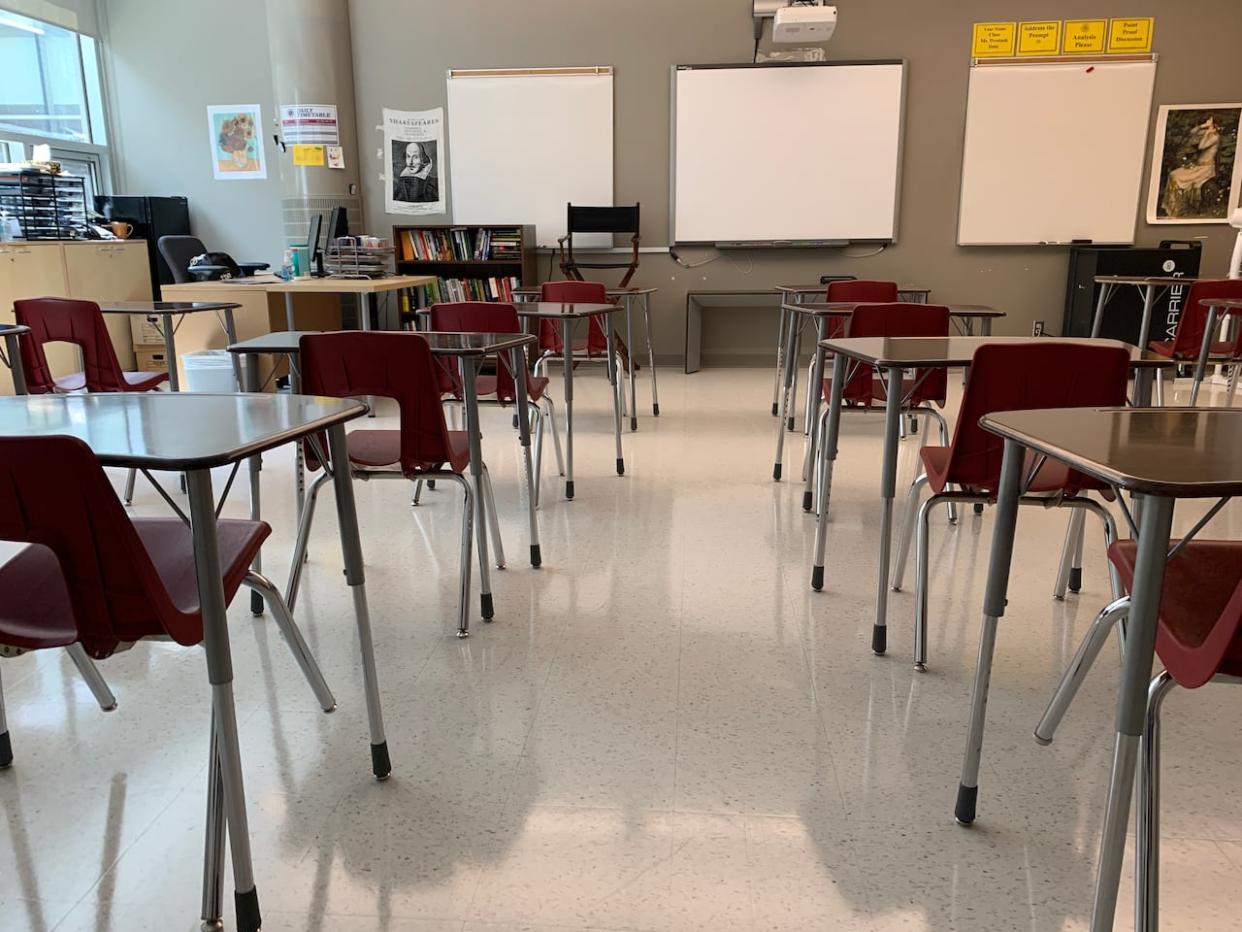Sask. teachers to begin province-wide work-to-rule Monday after 'bargaining impasse' reached with government

The Saskatchewan Teachers' Federation (STF) says it has reached an impasse with the government-school board bargaining team and will once again begin work-to-rule on Monday.
The work-to-rule will continue indefinitely, STF said in a news release.
The two sides met Wednesday in an attempt to advance negotiations on a new collective agreement. The STF said Wednesday evening that the Government-Trustee Bargaining Committee refused to consider anything other than binding arbitration.
"Teachers are engaged and are committed to reaching a negotiated deal that will ensure students' needs can be met," STF President Samantha Becotte said.
"Government's singular focus and insistence on binding arbitration shows that it is unwilling to adequately address the urgent needs of Saskatchewan students," she said.
What is work-to-rule?
Work-to-rule means that there will be no voluntary services provided by teachers, no lunch supervision and teachers will begin their shift 15 minutes before the bell rings and end 15 minutes after.
An end to voluntary services means no sports, drama, music, band, science clubs, intramurals, rehearsals, student leadership activities, planning for book fairs and other clubs and activities, according to Becotte.
Negotiations fall apart
The government said it proposed the two sides jointly request binding arbitration, but said the STF declined.
With arbitration, the parties would submit proposals and agree to be bound by a contract written by an independent arbitrator.
Earlier in negotiations, the situation was reversed — the teachers had called for binding arbitration and the government rejected the proposal.
Job action earlier this year
Teachers have been without a contract since August of last year.
Beginning in January, teachers began job action that included rotating strikes, withdrawal from extracurricular activities and withdrawal from noon supervision.
The two sides reached a tentative agreement on May 17 that included salary increases of three per cent in each of the first two years and two percent in the third year.
A proposed task force on classroom complexity and a letter of understanding on violence-free classrooms was also part of the offer. The proposed contract did not address class size, a key issue for teachers.
The proposal was endorsed by the STF but was rejected by rank-and-file teachers in vote results announced on May 30. Teachers also rejected a different contract offer earlier in the year.
The STF represents around 13,000 teachers across the province.


